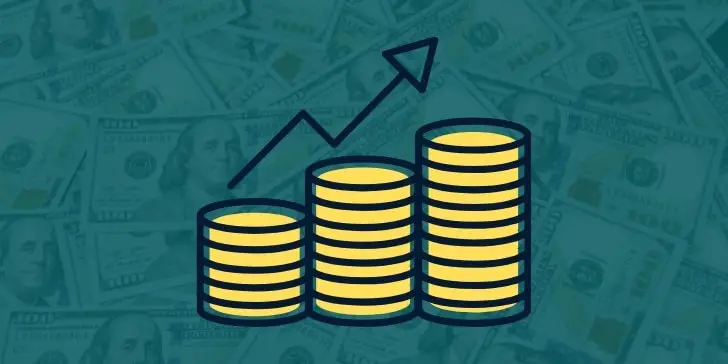In order to be an effective day trader you must learn to master your Forex market psychology. Not having a grip on your psychological trading downfalls can cost you a lot of money and undue stress.
Understanding Forex market psychology often means understanding the mass psychology of the Forex market. For the purpose of this article we will stick with the topic of individual market psychology, or how personal psychological hangups can cost you money in the Forex market (or any market for that matter).
Understanding Forex Market Psychology
One way that traders (especially new traders) are hindered psychologically is by fear of trading. This happens often, and can be hard to overcome for some traders. Most often this is due to a lack of confidence in one’s trading system, but fear of trading can also affect seasoned professionals from time to time.
Cure: Find a trading system that you have confidence in, and then learn to have the discipline to stick to your trading plan 100% of the time. Keep track of your trades:
- To prove to yourself that your trading system works in the long term
- To teach yourself your own personal bad trading habits
- To visualize where you have made and where you need to make improvements
Another way Forex market psychology gets to traders is through revenge trading. Revenge trading basically happens when you lose a trade, and you enter another trade almost immediately in an effort to gain your losses back. This trade is brought on by emotion, has little analysis to back it, and is rarely profitable.
Again, this is considered a rookie mistake. Taking a revenge trade shows a complete lack of discipline, however, even experience traders have the urge to do this from time to time. Revenge trading is a good way to blow your trading account.
Cure: When you lose a trade, take a minute or two to collect yourself. Go watch tv, a movie, check your social media sites, go for a walk, etc…. Do anything you can think of to get your mind off of the market for a bit.
If you are a particularly emotional trader, you may opt to stop trading for the day after a loss. Many professional day traders stop trading for the day after a loss or two.
In order to be a successful day trader, you have to learn to let your winning trades ride. This is another area where a trader’s psychology can fail him in the Forex market. It is sometimes hard to let winning trades ride, because of the fear of turning a win into a loss.
A rookie trader will take any profit saying, “I’ll never go broke taking a profit.” The fact is that if you are too quick to take your profits, you could end up losing money in the long run.
Experienced traders know the value of letting winning trades continue to surge. Sometimes the difference between daily and monthly profits or losses comes down to a breakout trade or two. This is often more of a challenge for rookie traders to understand, partly due to the fact that few rookies keep a trading journal.
Cure: Again, part of the issue with letting winning trades ride is confidence. Find a trading system that you are confident in. Make sure your trading system has distinct entry and exit point strategies (like the Top Dog Trading system) to help alleviate most of the guesswork.
I hope this article gives you a better understanding of Forex market psychology and some of the ways it can affect your trading. Understanding how to correct your own personal psychological mistakes is all part of the process of becoming a consistently profitable trader.
[adrotate group=”1″]





Chris – The issue goes much deeper, subconsiously if you will, where reactions are created and we don’t why we (I) have that knee-jerk response to make back what we lost on the first loser (usually many more to follow). The mechanism needs to be rewired, retrain the brain to understand the loss as a necessary part of trading (can’t win them all). Any suggestions beyond standing up and going to watch a movie?
Steve, thanks for your comment. You’re right about training yourself to think of losses as part of the trading business. In any business, you have profits and losses, and that’s just a part of the business. If you start to think of your losses in terms of business expenses, as a necessary and inevitable part of trading as a business, you already have an advantage over the majority of traders.
That being said, what does that mean in practice? Well to start off, most traders trades too often. They think that if they’re not in the market, they’re not making money, but that’s not how it works in reality. Ask any professional trader, and they will tell you the same thing: stay out of the market most of the time. Stay in cash. Only trade when there is a perfect storm (so to speak) of indications that your trade will work out. Even when trading this way, you will inevitably have losses, but over a long time period, you will do much better by taking fewer, highly qualified trades (as opposed to many, less qualified trades).
The remedy comes from patience and experience. As far as standing up and going to watch a movie, it really depends on what kind of trading you do. If you are daytrading, walking away for a while, or even calling it quits for the day makes sense. If you swing trade (like I mostly do these days), then watching a movie or even playing a round of gold will not make a difference, because you may not have another setup for days or even weeks.
In either case, the next time you think about taking a trade, you have to ask yourself if you’re forcing the issue to make back losses, or if the trade setup that you’re thinking of taking is really a qualified one. Would you take that trade if you had not taken a loss earlier? If the answer is “maybe” or “probably not,” then stay away. If the answer is “yes,” then you’re not doing anything wrong. Assuming that your trading system is profitable, you should make money over time with a patient attitude like this. Hope some of this helps you, Steve. Good luck.